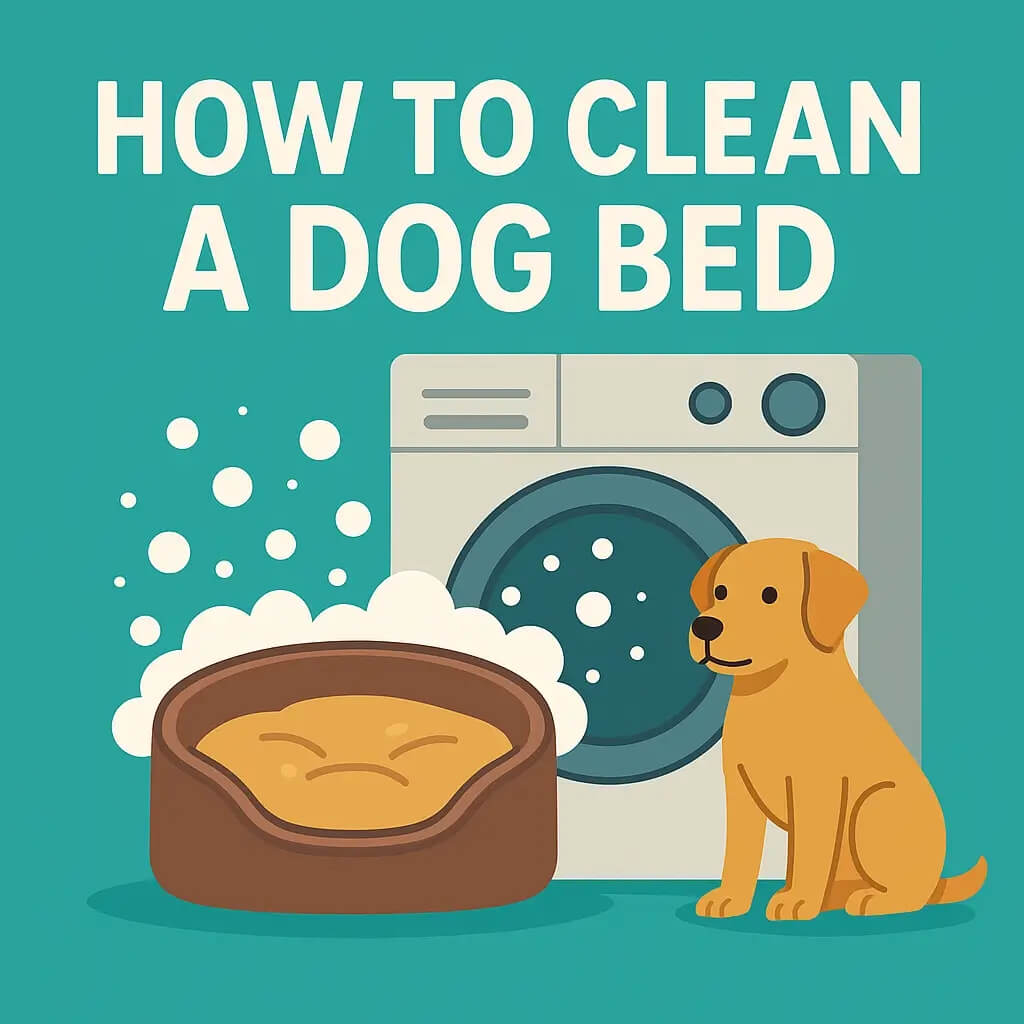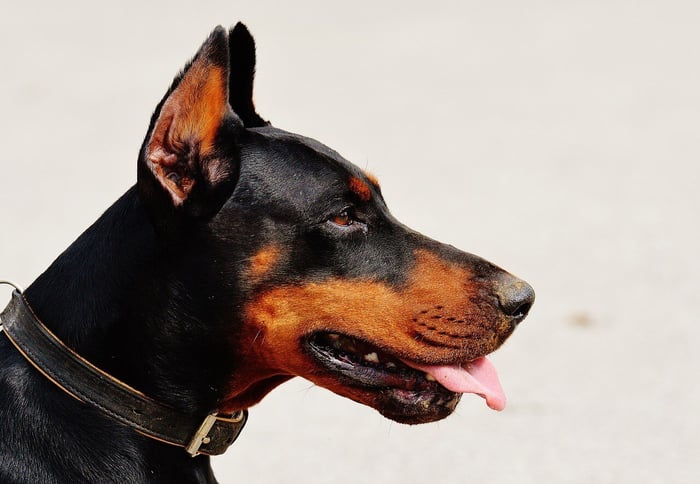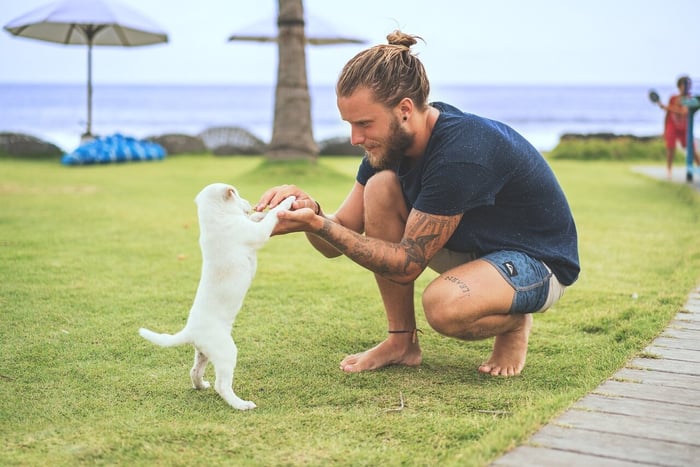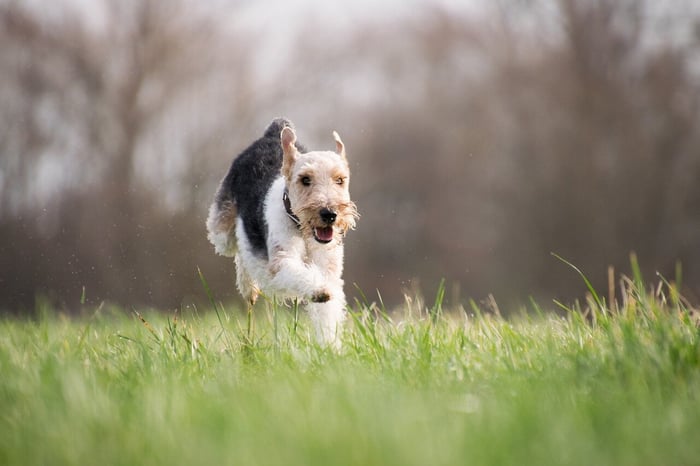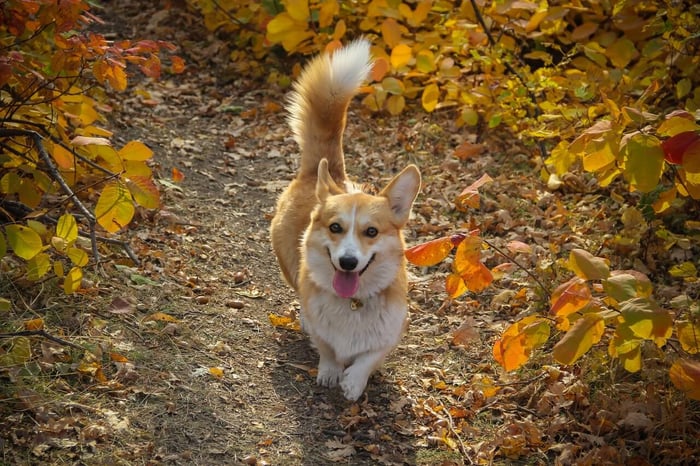Dog panting is a natural behavior, often used to help regulate a dog's body temperature, especially since they cannot sweat like humans. For active breeds like the Labrador Retriever, panting after exercise is common, while more sedentary dogs, such as the French Bulldog, may pant even after light activity due to their brachycephalic (short-nosed) structure. However, when a dog is panting excessively, it could indicate a more serious issue that requires attention. In this article, we’ll break down the reasons behind both normal dog panting and excessive panting in dogs, and when to seek urgent veterinary care.
What is Normal Panting in Dogs?
Panting in dogs is a natural behavior that helps regulate their body temperature, especially since dogs don’t sweat like humans. For most dogs, panting is a perfectly normal response to certain situations. Understanding the difference between normal panting and abnormal breathing is key to recognizing potential health concerns. Below are common reasons for a dog’s normal panting and how to differentiate it from panting excessively.
1. Cooling Down in Warm Weather
When temperatures rise, dogs rely on panting to cool themselves. By allowing air to circulate through their respiratory tract, panting helps maintain a dog’s normal respiratory rate. Short-nosed breeds, like Boston Terriers, may exhibit heavier panting due to their upper respiratory tract anatomy.
2. Excitement or Playtime
Healthy dogs often pant after engaging in activities like running or playing fetch. This type of heavy breathing is a natural response to increased physical exertion. For example, a pup may breathe faster after chasing a ball, which is completely normal for active dogs.
3. Emotional Triggers
Panting can also occur due to excitement or mild stress, such as meeting new people or encountering unfamiliar situations. These emotional responses can cause your four-legged friend to pant briefly but typically resolve quickly without concern.
When is Panting Considered Excessive?
When a dog starts panting excessively without a clear reason—such as after exercise or in warm weather—it’s time to take note. Abnormal panting can be linked to various underlying health conditions, especially when accompanied by other symptoms like:
Labored breathing
Coughing
Lethargy
Breeds like French Bulldogs and other short-nosed breeds are more prone to breathing issues, so monitoring their breathing heavily or panting heavily is essential.
Peluce de cordero de lujoso juguete para perro juguete interactivo
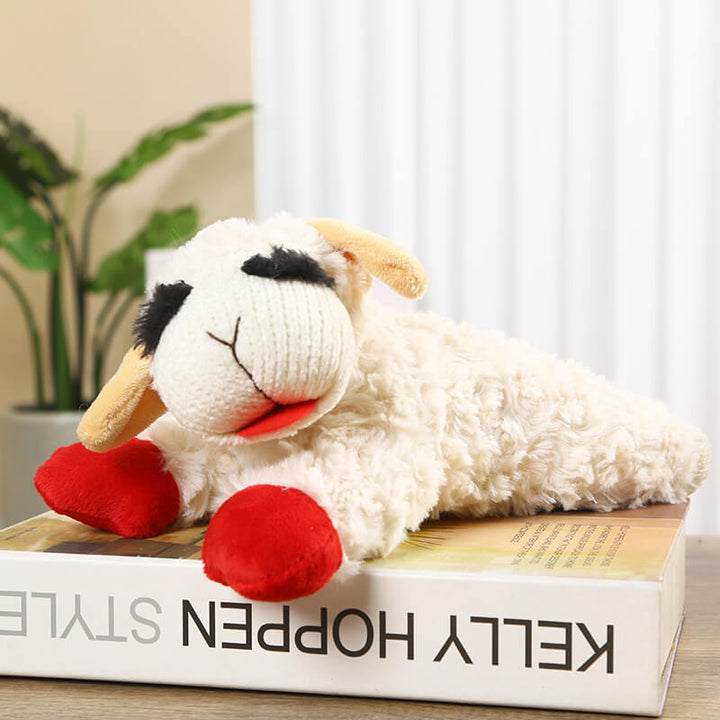
€6,95
Consiente a tu amigo con diversión y comodidad con nuestro adorable peluche de oveja chirriadora. Apto para perros de cualquier tamaño, este encantador y abrazable juguete está diseñado para entretener, entretener y brindarle consuelo. Adorable oveja: Cuidadosamente diseñado con detalles,… read more
Common Causes of Excessive Panting in Dogs
Excessive panting in dogs can be a sign of more than just overheating or exercise—it may indicate an underlying health condition requiring attention. Below are some common reasons why your dog may pant heavily and when to seek urgent veterinary care.
1. Overheating and Heatstroke
Dogs rely on panting to regulate their body temperature, but in extreme heat or after prolonged activity, they can overheat. Panting excessively is an early sign of heatstroke, a life-threatening condition. Look for symptoms like:
Heavy panting and drooling.
Weakness or collapse.
Blue-tinged gums or tongue.
Heatstroke is particularly dangerous for short-nosed breeds, such as Boston Terriers, which are prone to breathing issues. Immediate cooling and a visit to an animal hospital are essential.
2. Anxiety and Stress
Emotional factors like separation anxiety or fear during thunderstorms can cause dogs to pant more than usual. This type of panting may also be accompanied by other psychological signs, such as:
Restlessness or pacing.
Attempts to hide or cling to their owner.
Providing a calm environment or consulting a certified dog behaviorist can help reduce stress-related panting in dogs.
3. Pain or Discomfort
Dogs often express pain through panting heavily. This could be caused by injuries, such as broken ribs, or chronic conditions like arthritis. Signs of pain-induced panting include:
Reluctance to move or play.
Whining or avoiding physical contact.
If your dog is panting heavily and showing signs of discomfort, it’s crucial to consult your veterinarian to identify the underlying cause.
4. Heart or Lung Diseases
Excessive panting in dogs can be a symptom of serious health conditions, such as:
Heart disease: The heart struggles to deliver oxygen, leading to labored breathing.
Lung disease: Conditions like lung tumors or upper respiratory tract issues may cause your dog to breathe faster.
Regular check-ups can help catch these problems early and may include treatments like oxygen therapy or medication.
Breed-Specific Considerations in Panting
Now let's explore a factors to different breeds that can help you gain a deeper understanding of your beloved furry friend.
Brachycephalic Breeds: Special Attention Needed
- Breeds like French Bulldogs: These adorable pups have short nasal passages and elongated soft palates, making them prone to breathing difficulties and thus panting more.
- Keeping Cool: Ensure these breeds avoid excessive heat and strenuous exercise, especially in warm weather.
Senior Dogs: Age Matters
- Older Dogs Pant Differently: Aging can affect a dog's panting. For instance, a senior Labrador Retriever may pant more due to age-related health issues.
- Regular Check-Ups: Keeping up with vet visits is crucial for older dogs, including breeds like Golden Retrievers, to monitor any changes in their health.
Active and Large Breeds: High Energy, More Panting
- Energetic Breeds like Siberian Huskies: These dogs often pant more due to their high energy and activity levels.
- Monitoring Exercise: It’s important to balance exercise with rest, especially for active breeds like Rottweilers, to prevent overexertion.
Health Conditions That Cause Excessive Panting
While panting is a normal dog behavior, it can sometimes be a sign of underlying health issues. Now let’s explore some health conditions that may cause your dog to pant more than usual.
Heart Disease
- Symptoms in Dogs: Dogs with heart disease, like Boxers known for such issues, may pant excessively as their heart struggles to supply oxygen.
- Veterinary Care: Regular check-ups and monitoring are vital, especially for breeds prone to heart conditions.
Respiratory Disorders
- Breathing Issues: Breeds like Poodles or Labrador Retrievers might pant heavily if they have respiratory problems.
- Seeking Treatment: It's important to consult a vet if you notice unusual panting along with coughing or wheezing.
Other Medical Causes
- Cushing’s Disease: This condition, which affects the adrenal glands, can lead to excessive panting.
- Pain or Discomfort: Dogs often pant when in pain. For example, a Rottweiler may pant more due to joint discomfort.
Cama para el asiento del automóvil del perro - Primera clase

€55,95
Correas de seguridad ajustables y cinturones de seguridad de fijación Hebilla de seguridad incorporada para combinar con collar de perro. Almohadas de seguridad en la parte delantera y trasera. Úselo tanto en casa como en el coche. 2 formas de… read more
When to Seek Veterinary Help
It’s important to recognize when dog panting is a sign of a more serious issue related to your dog’s health. If your dog’s panting becomes excessive, prolonged, or is accompanied by other symptoms such as:
Noticeably labored breathing
Use of stomach muscles to help breathe
Blue-tinged gums or tongue
These symptoms may indicate a serious condition affecting your dog's health and require urgent veterinary care.
Tips for Managing and Reducing Excessive Panting
Let's now shift our attention to how you can assist in managing and potentially alleviating panting in your friend ensuring their well being and contentment.
Creating a Comfortable Environment
- Stay Cool: For breeds like the Siberian Husky, keeping cool is essential. Ensure they have access to shade and cool water, especially in hot weather.
- Peaceful Surroundings: Reduce stress-related panting (common in sensitive breeds like Beagles) by providing a calm and safe environment.
Exercise and Diet
- Balanced Activity: While breeds like Rottweilers need regular exercise, it’s important to avoid overexertion. Monitor your dog's panting during and after exercise.
- Nutrition Matters: Eating a diet is important, for keeping health and it can have an impact on how we breathe and pant. Some specific dog breeds, such, as Labrador Retrievers may require diets.
Stress Reduction Techniques
- Anxiety Management: For breeds prone to anxiety, such as the French Bulldog, consider stress-relief methods like calming music, pheromone diffusers, or consult a vet for more options.
- Regular Routines: Consistency in daily routines can help reduce anxiety and subsequent panting in many dogs.
Conclusion
Panting in dogs is a normal behavior, but knowing when it becomes a sign of concern is crucial for their health. Whether you have a Rottweiler, a Siberian Husky, or a small breed like a Beagle, understanding their breathing patterns and recognizing abnormal panting can help ensure their well-being. Providing comfort with an anti-anxiety dog bed can also be beneficial in helping your dog relax, especially during stressful situations. If you notice heavy breathing, excessive thirst, or signs of respiratory distress, don’t hesitate to seek veterinary assistance. Regular check-ups are key to identifying potential underlying causes early and keeping your four-legged friend healthy and happy.




